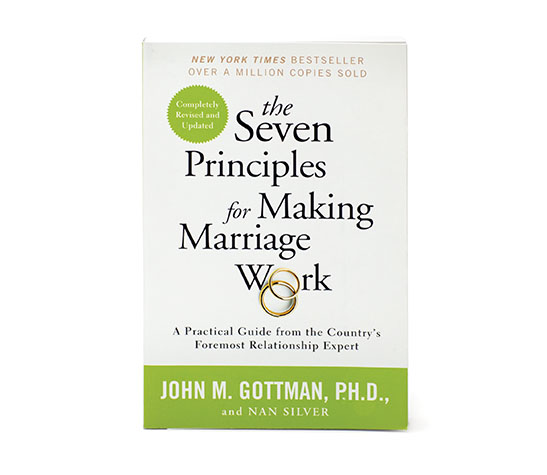Being able to shift gears in the heat of an argument and take a break is one of the most crucial relationship skills. It’s also one of the most difficult.
Breaks give you time to calm down, deepen your perspective, and have a successful “do-over” with your partner. In order to be successful, however, it helps to follow a few basic practices.
Unfortunately, when conflicts arise, many of us are likely to do more harm than good. We shut down conversations prematurely or push our partner past their threshold of tolerance, and when this happens, both partners can get locked in a stalemate of stonewalling.
We compound the problem by misusing the time apart. Dr. John Gottman, renowned for his research on marital stability and divorce prediction, describes what he calls “self-righteous indignation,” which includes obsessing over wrongs we believe our partner has committed. This can happen silently as we ruminate internally, or it can happen vocally when we “vent” to sympathetic others.
When you’re feeling self-righteous indignation, you tend to see your partner as the problem. It morphs the potential healing power of a timeout into just another hurt, widening the distance between you.
Even if you’re in a relationship that is not prone to volatility, you’re still vulnerable. As mammals, we’ve evolved to be acutely aware of one another’s nonverbal cues. Our spouses may read body language like eye-rolling, the avoidance of eye contact, loud sighs, and dismissive tone of voice as threats. These signs communicate disdain, which slowly erodes trust and intimacy.
How do you take space in such a way that supports your relationship, brings you closer, and gives you a perspective that moves beyond blame?
There are three things to consider before taking a break from conflict.
The When
Timing is everything. This means not shutting your partner down prematurely. In a healthy relationship, it’s important to hang in there even when your partner says things you don’t agree with.
Listening non-defensively, finding the reasonable part of their complaint, and offering assurance can go a long way in avoiding escalation. Non-verbal cues, such as nodding your head and maintaining eye contact, can significantly increase the likelihood of a productive conversation.
It’s important to recognize that even if you do this, arguments can still spiral out of control. For this reason, the when is also about recognizing when it is time to stop, give yourselves a chance to cool down, and recover from flooding.
It’s a fine line. To do it well, you must simultaneously be able to tolerate low-level conflict, and yet be aware of when it has become more beneficial to stop an argument at a moment’s notice. When every fiber of your being wants to shut down or scream, catch yourself on the cusp of feeling compromised and take a deep breath, and let your partner know that you need a break.
The What
Once you have recognized that a break from conflict needs to happen, what you do with it will determine whether the time apart will be beneficial or detrimental. At The Northampton Center For Couples Therapy, where we see 100 couples a week, this is where people seem most prone to going awry.
Navigating relational turmoil solo can stir up a slew of emotions. Even if you are the one who initiated the space, it’s not uncommon to find yourself feeling abandoned and rejected, or hyper-vigilant and self-protected. Both of these mindsets can barricade you from reconnecting with your partner and, ultimately, do more harm than good.
For this reason, it is important during a timeout to intentionally cease any negative thoughts about your partner. Instead, try to consciously cultivate a receptivity to the idea that there may be more to the picture than what you are seeing and feeling from your angered vantage point.
For this to succeed, refrain from venting to others, or even to yourself. Instead, channel your turmoil into something unrelated. Go for a walk, fold the laundry, weed the garden, or do anything that takes your mind away from the conflict.
While engaged in this other activity, if your mind latches onto anger or fear, allow yourself to let it go and intentionally consider that there may be no clear right or wrong. There are two views to every conflict and both are valid.
The How
Once you have decided to take a break and you have used that break wisely to reset yourself emotionally, the next is the how – coming back together and trying again.
Timeouts can’t last forever. They play a crucial role in helping you shift into a more centered and open place as a couple. But they can also backfire. If the break turns into a stalemate, the prolonged silence can be injurious and erode at trust in your relationship.
Dr. Gottman recommends they should last at least twenty minutes, since it will take that much time for your bodies to physiologically calm down. Anything more than a day can begin to feed negative sentiment.
If this happens, there’s a good chance your timeout has morphed into a silent battleground where issues of control and power are being played out between you. In these instances, you’ll each risk assuming that the other partner is fully responsible for re-initiating repair and taking the high road.
Don’t get stuck on who re-initiates. In most relationships, there is one partner who pursues more and one who distances more. And though this dynamic can cause real pain for couples, it is not a measure of love. Your focus should be on achieving re-connection sooner rather than later.
Cultivate an attitude of “no big deal.” People who are successful in their relationships know that the best way to get their partner to hear them is to stick to the issue at hand and de-emphasize taking a stand. They understand that conflict is inevitable, and they trust in their ability to handle their disagreements. They use “I statements” instead of “you statements.”
Learning to stay calm in the face of threat is not easy, but with time and practice we all have the potential to become less reactive, to move more fluidly in and out of conflict, and stay connected. Love smarter by paying attention to the when, the what, and the how before taking a break.








